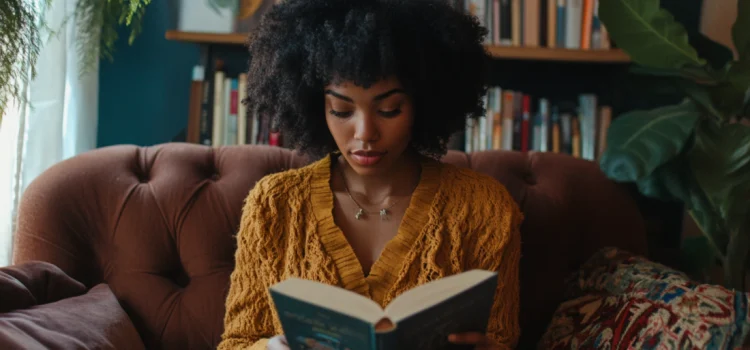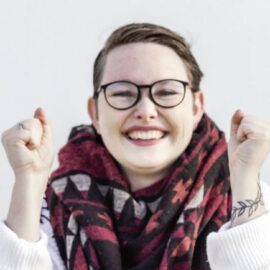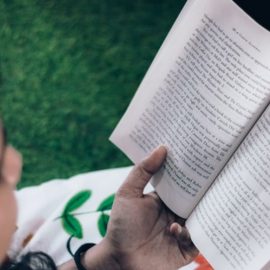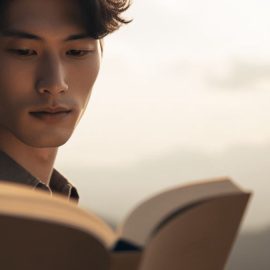

This article is an excerpt from the Shortform book guide to "Unbound" by Tarana Burke. Shortform has the world's best summaries and analyses of books you should be reading.
Like this article? Sign up for a free trial here.
What are the best Tarana Burke quotes from her book, Unbound? What does she say about self-love, abuse, and unkindness?
In Unbound, Tarana Burke discusses her experience with childhood sexual abuse and how community organizing helped her cope with her trauma. She also talks about the factors that led her to find the “me too” movement.
Below, we’ll look at quotes from Unbound that summarize her story.
Quotes From Tarana Burke’s Book Unbound
You’ve likely heard of the #MeToo movement, but you may not know where the phrase “me too” originated. In Unbound, award-winning activist Tarana Burke explores the pivotal role she played in founding the movement. Burke coined the phrase “me too” as a tool for healing from sexual violence based on her own journey of recovery via community connection, and she continues to work toward healing sexual violence in the Black community.
Here are four Tarana Burke quotes that encapsulate her book, Unbound.
“You can dodge a rock, but you can’t unhear a word. You can’t undo the intentional damage that some words have on your mind, body, and spirit. Especially a word like ugly.”
By the age of 12, Burke believed she was ugly due to strangers’ unkind stares and comments about her appearance. Burke explains that the notion that she’s ugly is rooted in anti-Black beauty standards—she describes herself as having a large nose, full lips, and dark skin, features that are often stigmatized. She was raised to love being Black, but the callous comments she received still took a toll on her. She didn’t just believe that she was ugly—she believed that because she was ugly, she deserved cruel treatment.
Another force that contributed to Burke’s pervasive feelings of shame was her mother’s tendency to yell at and humiliate her for minor infractions. For example, as a child, Burke once wondered what dish soap tasted like and touched a used dishrag to her tongue to find out. Her mother saw her, became furious, and berated her by suggesting she was a disgusting dishrag.
Later, when Burke had consensual sex for the first time as a teenager, her mother found out about it by reading her diary and responded in an angry, judgmental way, which made Burke feel ashamed. She also forced Burke to see a gynecologist and get tested for sexually transmitted infections, which was painful and retraumatizing. Burke says that by treating her this way, her mother confirmed her belief that she was inherently flawed and unworthy of love.
“Maybe community creates courage. What if courage creates community? Maybe empathy creates courage. How can you express empathy towards others if you can’t empathize with your own self? Is the core of healing empathy and courage?”
Burke says that the betrayals she and her child experienced at Sanders’s hands eroded her trust in and commitment to her community. They also helped her recognize the need for anti-sexual violence activism within her community. A second factor also made this need evident: When Burke tried to find resources and support for victims of childhood sexual abuse, she hit dead ends. Burke explains that in her work with children, many girls disclosed that they’d experienced sexual violence. She took several of them temporarily into her home to help keep them safe. But Burke felt helpless to prevent harm from befalling them, and every resource she tried to enlist in helping them, including the local rape crisis center, was unwilling to help.
In a moment of intense dejection after she ran into these dead ends in 2005, Burke prayed for direction. God’s response, she says, was that she must forge a new path ahead: Since she couldn’t protect vulnerable girls from sexual abuse, she would help them heal, using what she’d learned from her own healing journey.
Burke says she realized that to effectively lead such a program, she’d have to be honest and vulnerable about her own experiences of victimization and healing. This required her to finally face the memories she’d stuffed down for years. She dedicated a night to remembering all she’d gone through. At first, this process was agonizing, but eventually, pain gave way to contemplative thought. Her memories provided valuable insights—she realized that empathizing with Maya Angelou had helped her feel less ashamed and that the prospect of empathic connection had emboldened Heaven to break her silence. With the importance of empathic connection in mind, she came up with the phrase “me too,” which would become a cornerstone of her movement.
“Never let anyone touch your private parts, they’d say. But I wasn’t told why I had to protect my private parts, just that it was imperative that I did. Because of this, when I thought of my experience, I didn’t hold my abusers accountable—I held myself to blame. In my mind, they didn’t abuse me. I broke the rules. I was the one who did something wrong.”
Burke says the first time she was sexually assaulted, she was seven years old—too young to understand what was happening to her. When she was playing outside, an older boy who lived in her neighborhood led her out of her parents’ sight, penetrated her, and ejaculated on her (she thought he urinated). Then, beginning at age nine, she was molested by a different boy in her neighborhood. He took photos of the abuse and used them to blackmail her into submission, which worked until a painful encounter (he knocked against the cast on her broken leg) spurred Burke to fight back and steal his camera at the age of 12.
The abuse Burke endured made her feel humiliated and frightened, but she didn’t tell anyone what happened for two reasons. First, she felt that she had done something wrong and would get into trouble if she disclosed the assault. Burke explains that she had been taught not to let anyone touch her genitals, but she didn’t understand that this advice was intended as a warning about sexual violence. She blamed herself for allowing someone to touch her, even though she didn’t have a choice. This led her to develop a deep sense of shame and conclude that she was a bad person. As a result, she often falsely confessed sins at her Catholic school, contriving opportunities to repent for what she considered truly sinful (her victimization).
Second, Burke worried that her stepfather would go to prison for hurting the boys who abused her. Burke describes her stepfather as a respected authority figure in her neighborhood, and she’d seen him become violent with others who harmed people in their community. Since they were family, this possibility seemed even more likely. When Burke stole her abuser’s camera and ran away from him, she ran into an elderly neighbor who guessed what had happened. This neighbor told Burke not to tell her stepfather about the abuse because he was too valuable a part of the community to lose to prison, reinforcing Burke’s silence. (Later, her stepfather went to prison for an unrelated reason, and Burke says she inexplicably felt she was to blame.)
“There is no question that self-hate severely limits one’s capacity to love fully and wholeheartedly. Capacity and desire are not the same thing, especially in discussions of love.”
Burke says her involvement in activism also opened the door to higher education and a career. After high school, she didn’t have the financial resources to attend college, so she took some time off from school and worked to save money. When one of 21C’s leaders, Rose Sanders, heard about her plan, she pulled strings to get Burke accepted to Alabama State University with full funding. During Burke’s freshman year of college (1992), she continued her activism by organizing protests against racism and sexism. In recognition of her talent and passion for community activism, 21C offered Burke an organizing job in Selma, Alabama when she graduated from college.
Burke explains that her job entailed helping to lead youth camps. At the first camp she organized, she connected with a troubled girl named Heaven. Burke believed she could teach Heaven to channel her rage about injustice into more productive outlets, and together they made progress toward that goal.
However, when Heaven confided in her that she’d been sexually abused, Burke handled it poorly. The conversation triggered her own feelings of grief and shame, so she ended it abruptly and referred Heaven to another camp leader. This broke Heaven’s fragile trust and their connection. When Burke thought about how to handle similar situations in the future, she realized she had to work through her trauma. She started by admitting to herself that she’d been abused.

———End of Preview———
Like what you just read? Read the rest of the world's best book summary and analysis of Tarana Burke's "Unbound" at Shortform.
Here's what you'll find in our full Unbound summary:
- The origin of the viral phrase “me too”
- What Tarana Burke did to heal from the experience of childhood sexual abuse
- The story of the #MeToo movement






